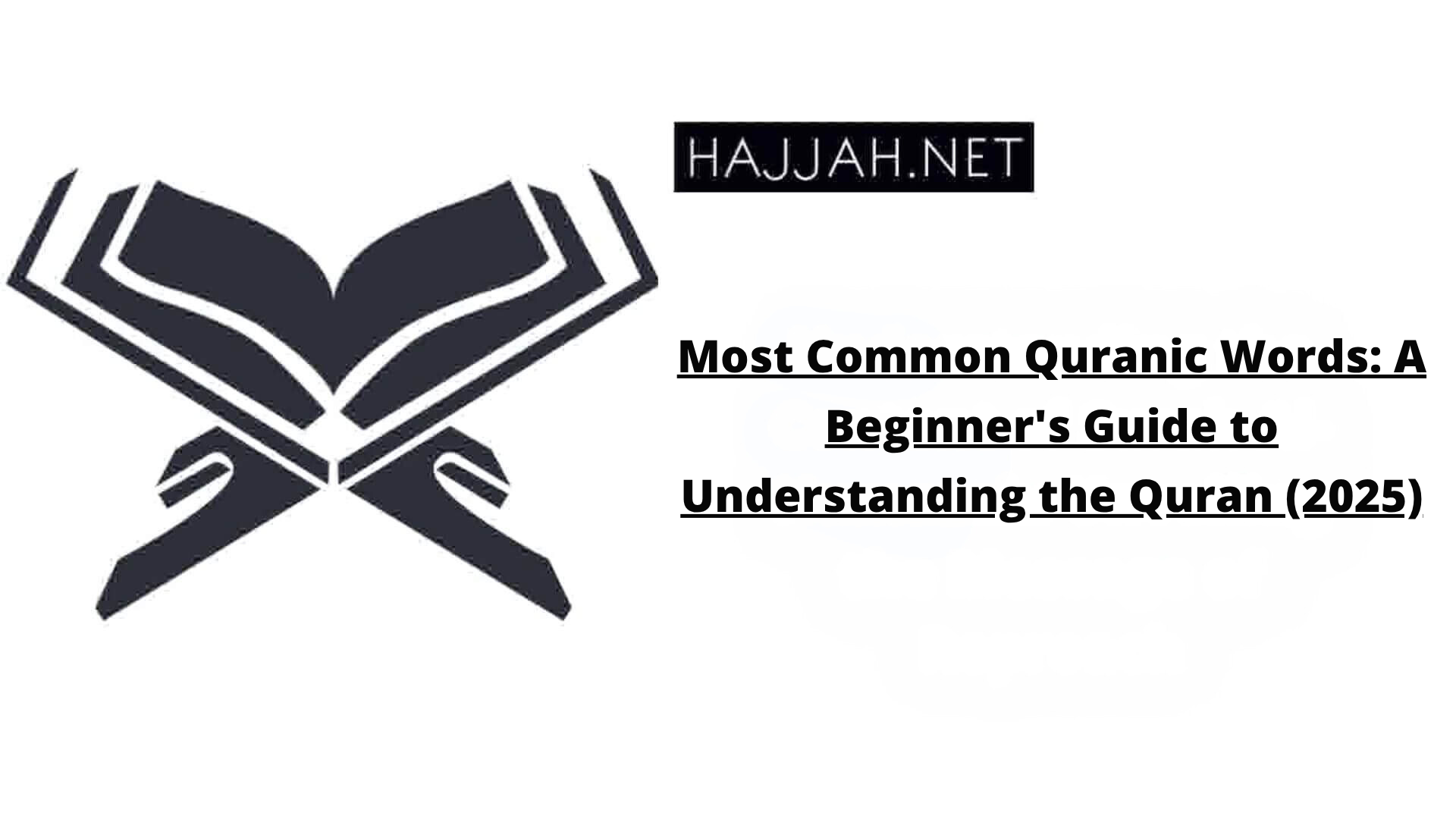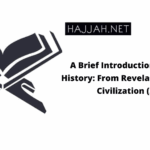The Holy Quran, the divine scripture of Islam, was revealed in the Arabic language. For non-Arabic speakers, engaging directly with the original text can seem daunting. While translations provide invaluable access to the meaning, learning even the most frequently used words in Quranic Arabic can unlock a significantly deeper level of understanding, connection, and appreciation during recitation and study.
Remarkably, linguistic analysis shows that a relatively small number of high-frequency words make up a large percentage of the Quran’s text. Focusing on these common words provides a powerful foundation for anyone seeking to connect more profoundly with Allah’s message. This article introduces the importance of this vocabulary and lists some of the most common words found in the Quran.
Why Focus on Common Quranic Words?
Learning high-frequency words offers several benefits:
Also Read
- Builds a Strong Foundation: These words appear on nearly every page, forming the basic structure of sentences.
- Boosts Comprehension Quickly: Recognizing recurring words allows you to start grasping the gist of verses much faster.
- Unlocks Sentence Structure: Many common words are particles (like ‘and’, ‘in’, ‘from’), prepositions, and pronouns that are essential for understanding grammatical relationships.
- Increases Confidence: Seeing familiar words repeatedly builds confidence and motivation for further learning.
- Connects to Core Concepts: Many high-frequency words are themselves fundamental Islamic terms (e.g., Allah, Rabb, Iman).
- Gateway to Deeper Study: It provides a manageable starting point for learning Quranic Arabic or understanding Tafsir (commentary).
Categories of Common Quranic Words (with Examples)
Here are some examples from key categories of high-frequency words. Learning these can significantly enhance your understanding:
(Note: Transliterations are approximate representations of Arabic sounds.)
1. Particles & Prepositions (Extremely Common)
These connecting words are crucial for sentence structure.
min(مِنْ): from, of, amongila(إِلَىٰ): to, towards'an(عَنْ): about, from, away from'ala(عَلَىٰ): upon, on, againstfi(فِي): in, inside, amongbi(بِـ): with, by, inli(لِـ / لَـ): for, to, belonging to (sometimes ‘la’ for emphasis: verily)ka(كَـ): like, aswa(وَ): andfa(فَـ): then, so, thusinna(إِنَّ): indeed, verily, surelyanna(أَنَّ): that (conjunction)an(أَنْ): to (introducing subjunctive verb), thatla(لَا): no, do not (negation)ma(مَا): what, that which, whatever; also used for negation (not)alladhi / allati / alladhina(ٱلَّذِي / ٱلَّتِي / ٱلَّذِينَ): who, which, those who (relative pronouns)hal(هَلْ) /a(أَ): Interrogative particles (used for questions, like ‘do you?’ or ‘is it?’)
2. Pronouns (Personal & Attached)
These replace nouns and indicate possession.
huwa(هُوَ): he, ithiya(هِيَ): she, ithum(هُمْ): they (masculine plural)hunna(هُنَّ): they (feminine plural)anta(أَنْتَ): you (masculine singular)anti(أَنْتِ): you (feminine singular)antum(أَنْتُمْ): you (masculine plural)antunna(أَنْتُنَّ): you (feminine plural)ana(أَنَا): Inahnu(نَحْنُ): we- Attached Pronouns (Suffixes): -hu (his/its), -ha (hers/its), -him (their/them), -ka (your/you masc.), -ki (your/you fem.), -kum (your/you plural), -i/-ni (my/me), -na (our/us). Learning to recognize these is very important.
3. Common Nouns
These represent people, places, things, and concepts.
Allah(ٱللَّهُ): God (The most frequent word in the Quran)Rabb(رَبُّ): Lord, Sustainer, CherisherYawm(يَوْمٌ): Day (often Yawm al-Qiyamah – Day of Resurrection)Qawm(قَوْمٌ): People, nation, communityKitab(كِتَٰبٌ): Book (referring to the Quran or previous scriptures)Ayah / Ayat(آيَةٌ / آيَٰتٌ): Sign(s), Verse(s) of the QuranNafs(نَفْسٌ): Soul, self, psycheArdh(أَرْضٌ): Earth, landSama' / Samawat(سَمَآءٌ / سَمَٰوَٰتٌ): Sky, heaven(s)Nar(نَارٌ): Fire (often Hellfire)Jannah(جَنَّةٌ): Garden (Paradise)Rasul(رَسُولٌ): MessengerNabi(نَبِيٌّ): ProphetShaytan(شَيْطَٰنٌ): Satan, the DevilNas(ٱلنَّاسُ): Mankind, peopleQalb / Qulub(قَلْبٌ / قُلُوبٌ): Heart(s) (referring to the center of understanding/emotion)Iman(إِيمَٰنٌ): Faith, belief
4. Common Verbs (Past Tense, 3rd Person Masculine Singular Form Often Listed)
Verbs express actions or states of being. Learning common roots is key.
qala(قَالَ): he saidkana(كَانَ): he was / it wasamana(آمَنَ): he believedja'ala(جَعَلَ): he made / he appointed‘amila(عَمِلَ): he did / he worked (often ‘amiluṣ-ṣāliḥāt – did righteous deeds)atā(أَتَىٰ): he came / he brought‘alima(عَلِمَ): he knewra'ā(رَأَىٰ): he sawkafara(كَفَرَ): he disbelieved / he was ungratefulkhalaqa(خَلَقَ): he created
The “80% Quranic Words” Concept
You may encounter resources or programs mentioning that learning a few hundred high-frequency words can help you understand up to 80% of the Quranic text. This is a motivating concept based on the fact that particles, pronouns, and common verbs/nouns repeat very often. While mastering these words significantly boosts recognition and understanding of basic sentence structure, deep comprehension requires understanding grammar, context, and less frequent vocabulary. However, it remains an excellent starting point.
How to Learn These Words
- Frequency Lists: Use readily available lists or apps that focus on high-frequency Quranic words.
- Focus on Particles/Pronouns First: These are the glue holding sentences together.
- Contextual Learning: Learn words as you read or listen to the Quran with a reliable translation. Seeing them in context aids retention.
- Flashcards: Create physical or digital flashcards.
- Vocabulary Builders: Use apps or websites designed for Quranic vocabulary (e.g., Quranic Corpus, Bayna Yadayk).
- Basic Quranic Arabic Course: Structured courses provide grammar context alongside vocabulary.
Conclusion
Learning the meaning of the most common words in the Quran is a highly rewarding and achievable step towards a deeper connection with Allah’s revelation. While fluency in Quranic Arabic is a longer journey, mastering this foundational vocabulary significantly enhances understanding during recitation and reading, builds confidence, and provides a solid base for further study. By focusing on these high-frequency particles, pronouns, nouns, and verbs, you can unlock a greater appreciation for the beauty and guidance of the Holy Quran.







